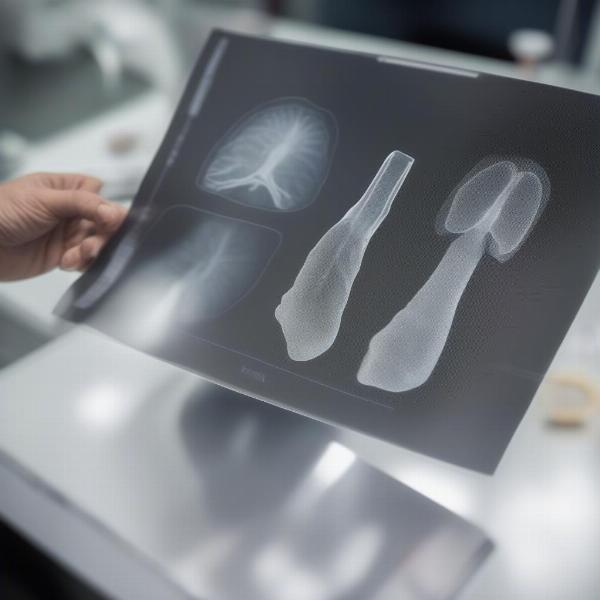Liver health is crucial for a dog’s overall well-being. The liver performs numerous vital functions, including filtering toxins, aiding digestion, and producing essential proteins. When a dog’s liver isn’t functioning optimally, it can lead to a range of health issues. That’s where best liver supplements for dogs come in, offering targeted support to maintain and improve liver function. Choosing the right supplement can be daunting, so we’ll explore what to look for and some of the top options available.
Understanding the Importance of Liver Health in Dogs
The liver is a powerhouse organ, working tirelessly behind the scenes. It processes everything your dog ingests, removes harmful substances, and plays a key role in metabolism. A healthy liver is essential for energy levels, a strong immune system, and overall vitality. When liver function is compromised, it can impact every aspect of your dog’s health. Signs of liver problems can include lethargy, jaundice (yellowing of the skin and eyes), vomiting, and loss of appetite.
 Healthy dog liver
Healthy dog liver
Choosing the Best Liver Supplements for Dogs
Selecting the best liver supplement requires careful consideration. Look for supplements containing ingredients known for their liver-supporting properties, such as SAMe (S-adenosylmethionine), milk thistle, dandelion root, and turmeric. Always consult with your veterinarian before starting any new supplement, especially if your dog has pre-existing health conditions or is taking other medications. They can help determine the appropriate dosage and ensure the supplement won’t interact negatively with other treatments. beef bone broth for dogs can also be a beneficial addition to a dog’s diet for overall health.
What to Look for in a Liver Supplement
- Quality Ingredients: Opt for supplements made with high-quality, natural ingredients.
- Veterinarian Recommended: Choose supplements that are recommended by veterinarians or have positive reviews from other dog owners.
- Dosage: Ensure the dosage is appropriate for your dog’s size and weight.
- Palatability: Consider the form of the supplement and whether your dog will readily consume it. Some supplements come in chewable tablets or powders that can be mixed with food.
Common Liver Issues in Dogs
Various factors can contribute to liver problems in dogs, including infections, toxins, certain medications, and genetic predispositions. Breeds like Doberman Pinschers, Bedlington Terriers, and West Highland White Terriers are known to be more susceptible to certain liver diseases.
“My dog seems tired all the time. Could it be a liver problem?”
Lethargy is a common symptom of liver issues. While it can also be a sign of other health problems, it’s essential to consult with your veterinarian to determine the underlying cause. They can perform blood tests and other diagnostic procedures to assess liver function.
Quote from Dr. Emily Carter, DVM: “Liver disease can manifest in various ways, and early detection is crucial for effective treatment. Regular check-ups and blood work can help identify potential issues before they become serious.”
Supporting Liver Health Through Diet
A balanced diet is fundamental to supporting liver health. Feed your dog high-quality dog food that is appropriate for their age, breed, and activity level. Avoid feeding table scraps, as many human foods are toxic to dogs and can put extra strain on the liver. Learn about adding shiitake mushrooms for dogs to their diet for potential health benefits.
Quote from Dr. Sarah Miller, DVM, PhD in Animal Nutrition: “A nutritious diet is the cornerstone of good health, especially for the liver. Providing your dog with a balanced diet that meets their specific needs can significantly impact their overall well-being and help prevent liver problems.” fluticasone for dogs can be used to treat certain conditions but should always be administered under veterinary supervision.
Conclusion
Maintaining liver health is essential for your dog’s overall well-being. Best liver supplements for dogs can offer valuable support, especially for dogs with existing liver issues or those at risk. Remember to consult with your veterinarian before starting any new supplement. They can help you choose the right product and ensure its safety and effectiveness.
FAQ
- What are the signs of liver problems in dogs? Signs can include lethargy, jaundice, vomiting, loss of appetite, and increased thirst.
- How can I support my dog’s liver health? A balanced diet, regular exercise, and avoiding toxins are key. Liver supplements can also be beneficial.
- Are all liver supplements the same? No, different supplements contain varying ingredients and dosages. Consult your veterinarian for recommendations.
- Can I give my dog human liver supplements? No, never give your dog human supplements without consulting your veterinarian. Dosages and formulations are different for dogs.
- How long does it take for liver supplements to work? Results can vary depending on the dog and the supplement. It’s important to be patient and consistent with administration.
- Are there any side effects of liver supplements? Some dogs may experience mild digestive upset. Consult your veterinarian if you notice any adverse reactions.
- What is the best liver supplement for my dog? The best supplement will depend on your dog’s individual needs. Your veterinarian can help you determine the most appropriate option. Consider adding vitamin b complex for dogs for overall health support.
ILM Dog is a leading international pet website dedicated to providing expert advice and resources on dog care and well-being. We cover a wide range of topics, including breed selection, health and medical care, training, nutrition, grooming, and product recommendations. Our goal is to empower dog owners with the knowledge they need to provide the best possible care for their furry companions. For specific guidance on choosing the best liver supplement for your dog, including recommendations tailored to your dog’s breed and health status, contact us at [email protected] or call us at +44 20-3965-8624. ILM Dog is committed to helping you keep your canine companion happy and healthy. You can find more information about liver health in our article on hepatoadvanced large dog.